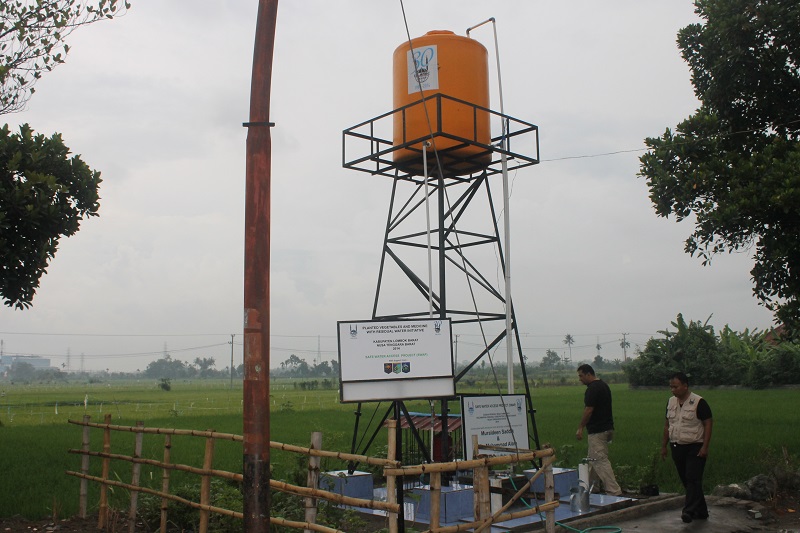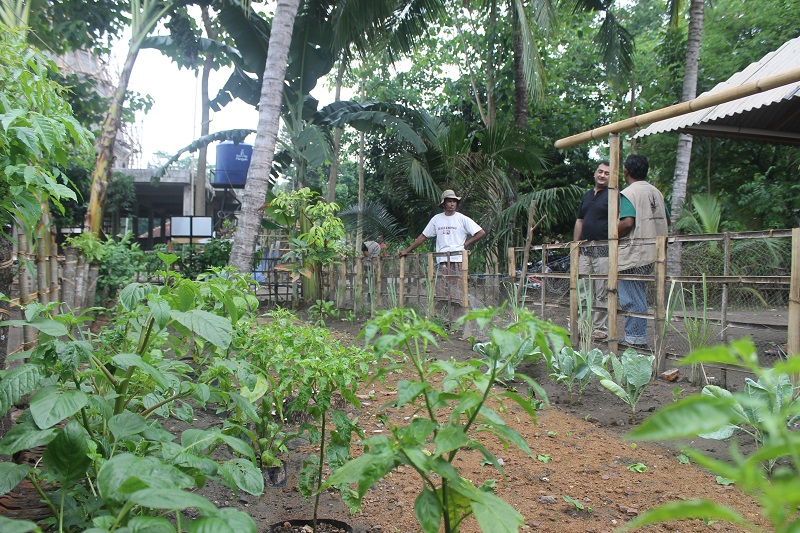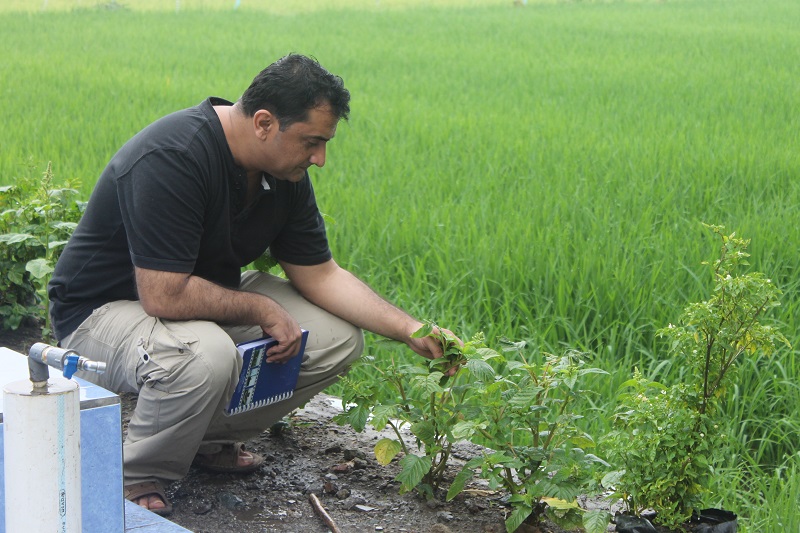More than 20 communities in one of Indonesia’s poorest provinces are gaining reliable access to water and food sources, thanks to our latest innovative projects.
Nusa Tenggara Barat province is prone to drought – which is exacerbated by climate change – and many rivers and streams are contaminated. Remote communities in Lombok particularly struggle without water sources nearby, forcing women and children to travel large distances to collect water.
Water for remote villages in Lombok district

Our most recent projects in the province serve remote villages of the Lombok Barat district. Altogether, 21 villages are benefitting from deep wells, water pipes and latrines installed by Islamic Relief.
So far, 18 new wells have been constructed and a further three brought back into use, and two piping systems are now operational. In addition, we have constructed a couple of communal latrines and some 600 private toilets in a bid to improve hygiene and health in the villages.
Each community has been empowered to maintain their water sources, coming together in water management committees trained by Islamic Relief, which has been working in Nusa Tenggara Barat since 2008.
When the projects complete later this year, around 3,250 families will have reliable access to clean water. With people no longer compelled to rely on contaminated water sources, it is expected that the project will also help prevent the spread of water-borne diseases.
Communities already building on the scheme
Santeluk Daye village, home to about 1,000 people, is amongst those to benefit. Before, women and children faced an uphill climb after fetching water from wells dig in the foothills of the mountain. Worse still, the shallow wells dry up completely during the peak dry season – forcing already poor families to buy water from local markets.

It took 15 days for our technical team to drill through the rocky terrain to reach the water table. To even reach the site was a challenge, recalled Abdul Samad, 65, head of the new water management committee.
“We were so excited by the arrival of the drilling team in our village. But soon, we realised that the access road was too rocky and narrow for the big vehicle to bring the drilling equipment to the top of the mountain. Water is so important that we carried this heavy equipment all the way to the drilling location.”
Since the well was installed in early December, the water management committee have made several extensions themselves.
“We collected IDR 400,000 (USD $36) to buy a used 250 litre water tank and concrete tower to extend the connection water connection to the other side of the village,” explained Abdul.
“People are now asking for private connections to their homes and we have already started laying pipes to serve 40 houses.”
The community has also established a communal latrine, and local families are contributing a small monthly sum to maintain the water and sanitation facilities.
An innovative idea to boost food security
“We felt the need to effectively use the waste water spilled during collection and washing” says Islamic Relief’s country director, Syed Abdul Razak, explaining that it is important to address food security holistically for poor families, even if they are already producing staples such as rice and maize.

“Very few people grow crops to eat at home, so there is a need to diversify their food intake” he says. So, Islamic Relief piloted an innovative idea in Karang Kesume village. Here, an underground drainpipe was laid to channel waste water to a small community garden that local people and Islamic Relief set up.
The first harvest of lettuce, broccoli and other plants has already been distributed amongst local families, with a second harvest expected in the next few weeks.
Three other communities have since established small vegetable gardens which use residual water from the wells for irrigation. Islamic Relief has provided sprinklers for some of the gardens, which are are giving local families supplementary food and demonstrating the benefits of home gardening – an idea which is now being championed by the water management committees.
“It is a long process of change [to promote home gardening], but one day we will get there,” says committee head Haji Mukhtar.
The projects are part of a series of Islamic Relief interventions in the area. Overall, in 2014, we provided water and sanitation-related support to 10,000 people in Lombok. The projects build on our experience delivering similar schemes in Banten and West Java province.










